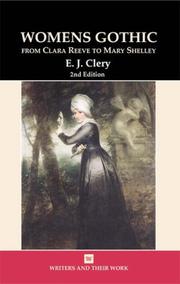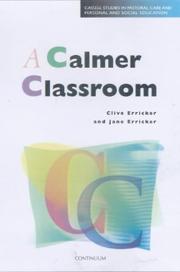| Listing 1 - 10 of 174 | << page >> |
Sort by
|
Book
ISBN: 1848880995 Year: 2012 Publisher: Leiden; Boston : BRILL,
Abstract | Keywords | Export | Availability | Bookmark
 Loading...
Loading...Choose an application
- Reference Manager
- EndNote
- RefWorks (Direct export to RefWorks)
Book
Year: 1999 Publisher: [Place of publication not identified] : Electric Book Company,
Abstract | Keywords | Export | Availability | Bookmark
 Loading...
Loading...Choose an application
- Reference Manager
- EndNote
- RefWorks (Direct export to RefWorks)
Conan Doyle explores the relationship between an exceedingly rational professor who succumbs to the charm of a beautiful clairvoyant and mesmerist-- and soon finds himself carrying out her nefarious directives against his will
Horror tales, English. --- Hypnotism --- Mesmerism
Book
Year: 1999 Publisher: [Place of publication not identified] : Electric Book Company,
Abstract | Keywords | Export | Availability | Bookmark
 Loading...
Loading...Choose an application
- Reference Manager
- EndNote
- RefWorks (Direct export to RefWorks)
Conan Doyle explores the relationship between an exceedingly rational professor who succumbs to the charm of a beautiful clairvoyant and mesmerist-- and soon finds himself carrying out her nefarious directives against his will
Horror tales, English. --- Hypnotism --- Mesmerism

ISBN: 9780140109870 0140109870 Year: 1988 Publisher: London: Penguin books,
Abstract | Keywords | Export | Availability | Bookmark
 Loading...
Loading...Choose an application
- Reference Manager
- EndNote
- RefWorks (Direct export to RefWorks)
Vampires --- Horror tales, English --- Horror tales, American

ISBN: 1786946319 0746313101 0746311443 Year: 2004 Publisher: Tavistock, Devon Liverpool University Press
Abstract | Keywords | Export | Availability | Bookmark
 Loading...
Loading...Choose an application
- Reference Manager
- EndNote
- RefWorks (Direct export to RefWorks)
Female writers of the Gothic were hell-raisers in more than one sense: not only did they specialize in evoking scenes of horror, cruelty, and supernaturalism, but in doing so they exploded the literary conventions of the day, and laid claim to realms of the imagination hitherto reserved for men. They were rewarded with popular success, large profits, and even critical adulation. E.J. Clery's acclaimed study tells the strange but true story of women's gothic. She identifies contemporary fascination with the operation of the passions and the example of the great tragic actress Sarah Siddons as enabling factors, and then examines in depth the careers of two pioneers of the genre, Clara Reeve and Sophie Lee, its reigning queen, Ann Radcliffe, and the daring experimentalists Joanna Baillie and Charlotte Dacre. The account culminates with Mary Shelley, whose Frankenstein (1818) has attained mythical status. Students and scholars as well as general readers will find Women's Gothic a stimulating introduction to an important literary mode.
Horror tales, English --- English fiction --- History and criticism. --- Women authors
Book
ISBN: 9781782798903 9781782798910 Year: 2015 Publisher: Winchester, England Zero Books
Abstract | Keywords | Export | Availability | Bookmark
 Loading...
Loading...Choose an application
- Reference Manager
- EndNote
- RefWorks (Direct export to RefWorks)
Could it be that the more we know about the world, the less we understand it? Could it be that, while everything has been explained, nothing has meaning? Extending the ideas presented in his book In The Dust of This Planet, Eugene Thacker explores these and other issues in Starry Speculative Corpse. But instead of using philosophy to define or to explain the horror genre, Thacker reads works of philosophy as if they were horror stories themselves, revealing a rift between human beings and the unhuman world of which they are part. Along the way we see philosophers grappling with demons, struggling with doubt, and wrestling with an indifferent cosmos. At the center of it all is the philosophical drama of the human being confronting its own limits. Not a philosophy of horror, but a horror of philosophy. Thought that stumbles over itself, as if at the edge of an abyss. Starry Speculative Corpse is the second volume of the'Horror of Philosophy'trilogy, together with the first volume, In The Dust of This Planet, and the third volume, Tentacles Longer Than Night.
Philosophy and civilization --- Horror tales, English --- Metaphysics. --- History and criticism.
Book
Year: 1941 Publisher: London : Fortune press,
Abstract | Keywords | Export | Availability | Bookmark
 Loading...
Loading...Choose an application
- Reference Manager
- EndNote
- RefWorks (Direct export to RefWorks)
Gothic revival (Literature) --- English fiction --- English fiction --- Horror tales, English
Book
ISBN: 0867766417 Year: 1997 Publisher: [St. Lucia, Qld.] : Victorian Fiction Research Unit, Dept. of English, University of Queensland,
Abstract | Keywords | Export | Availability | Bookmark
 Loading...
Loading...Choose an application
- Reference Manager
- EndNote
- RefWorks (Direct export to RefWorks)
Dracula, Count (Fictitious character) --- Horror tales, English --- Stoker, Bram,

ISBN: 014043741X 9780140437416 Year: 2000 Publisher: London : New York : Penguin Books,
Abstract | Keywords | Export | Availability | Bookmark
 Loading...
Loading...Choose an application
- Reference Manager
- EndNote
- RefWorks (Direct export to RefWorks)
"An encounter with the supernatural in an everyday setting accentuates its strangeness; a truth used to eerie effect in Gaskell's Gothic tales. A portrait turned to the wall, a hidden manuscript, a mysterious child that lives on the freezing moors, a doppelganger formed by a women's bitter curse: all of these things hint at male tyranny and woman as avenging angel - or devil." "Gaskell was fascinated by the dualities in women's lives and the way in which fact and fiction merge. 'Disappearances', a mix of gossip, legend and fact, relates stories of mysterious vanishings, 'Lois the Witch', a novella based on an account of the Salem witch hunts, shows how sexual desire and jealousy lead to communal hysteria and persecution, while 'The Grey Woman' explores a common Gothic theme, the way in which the ghosts of the past always return to haunt us."--Jacket.

ISBN: 082644976X Year: 2001 Publisher: London Continuum
Abstract | Keywords | Export | Availability | Bookmark
 Loading...
Loading...Choose an application
- Reference Manager
- EndNote
- RefWorks (Direct export to RefWorks)
Children's literature, English --- Horror tales, English --- History and criticism
| Listing 1 - 10 of 174 | << page >> |
Sort by
|

 Search
Search Feedback
Feedback About UniCat
About UniCat  Help
Help News
News